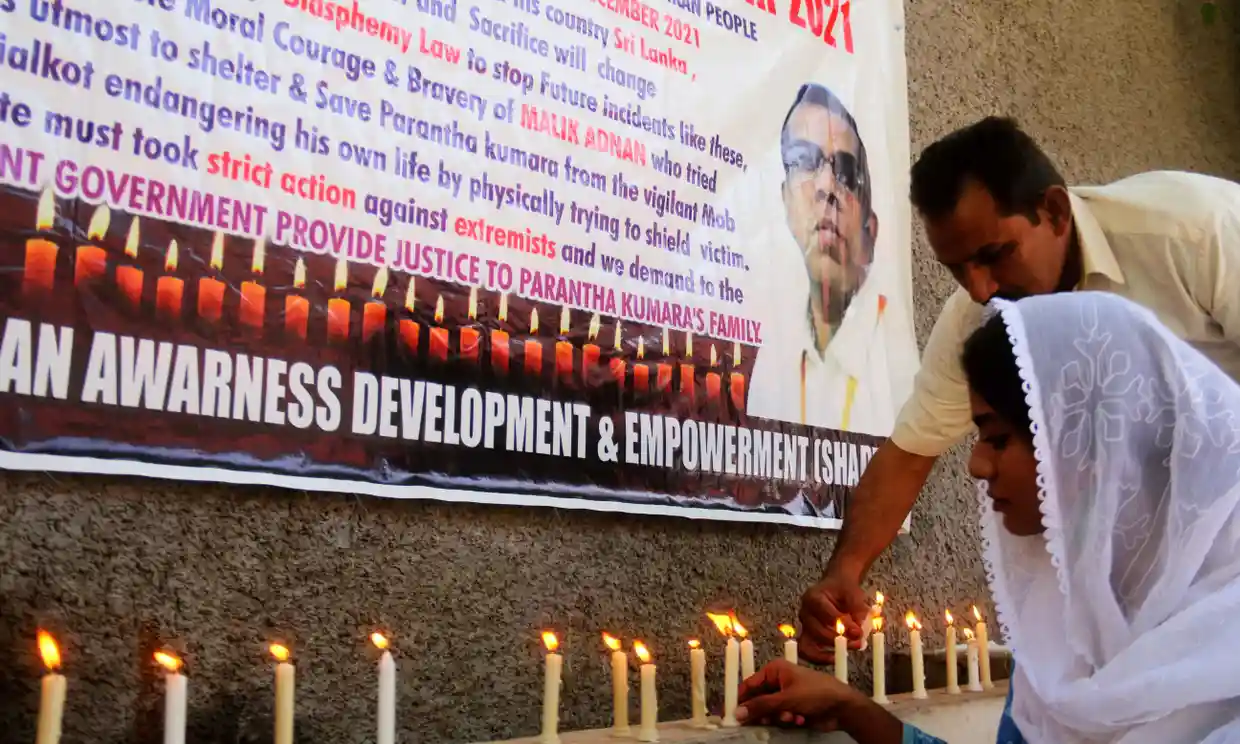
Pakistan has the strictest blasphemy laws in the world and every few months, some individual is accused of blasphemy and lynched or murdered. Two months after the lynching of a Sri Lankan national, an angry mob in Khandelwal stoned to death a mentally ill man alleging that the victim had burned some pages of the Qur’an.
This is not the first time such incidents have happened in Pakistan. In April 2017, an angry mob killed the university student Mashal Khan after he was accused of posting blasphemous content online. And a Christian couple were lynched then burned in a kiln in Punjab in 2014 after being falsely accused of desecrating the Qur’an.
Prime Minister Imran Khan and his special Advisor Tahir Ashrafi spoke out against the incident. Khan said on Twitter his government had “zero tolerance for anyone taking the law into their own hands”, adding that “mob lynchings will be dealt with full severity of the law”. Ashrafi said, “Who could possibly justify the barbaric act of stoning to death a mentally ill person? The man’s family say that he was mentally ill and his mental health wasn’t right for the past 10 to 15 years. This is not the religion of my prophet, to kill people under your own interpretation of religion.”
Imran Khan’s words would have been more reassuring if he had not openly supported the strict blasphemy laws of Pakistan, and mainstreamed the Tehreek e Labbaik Pakistan (TLP), a party whose claim to fame is organizing protests and rallies and attacking security forces and innocent civilians all in the name of blasphemy.
A country where vigilantes of all stripes can lynch or murder people, where Islamist groups defy the writ of the state, is no country for young or old.
![]()





